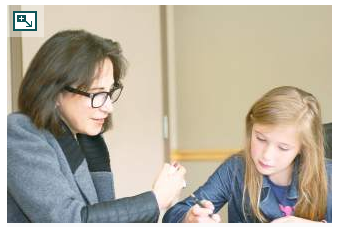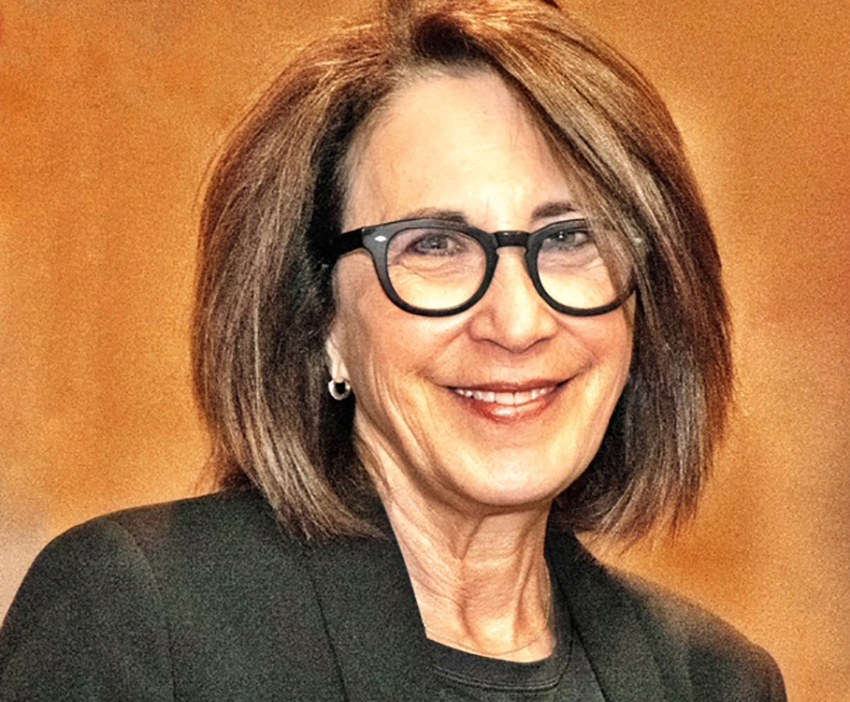As seen on the Vail Daily (Click here to read the Feature on VailDaily.com)
Sam wasn’t focusing on her reading. At the time, her mother recognized how active Sam was as a child and assumed she was having attention issues.
“I realized my child was struggling with something at a really young age — I felt like it was an attention issue with reading,” said Sam’s mother, whose name, along with her daughter’s, has been kept anonymous for privacy. “I could see it in her daily life, even though I wasn’t her teacher.”
The diagnosis Sam’s mother gave wasn’t accurate, and she was only able to understand Sam’s struggles after a process of psychological testing with Dr. Deborah Zwick, an Avon-based clinical psychologist who focuses on psychological assessment and psychotherapy.
The testing turned the page on Sam’s struggles with reading, as a new plan was developed to aid her on a sustainable and uplifting educational track.
“Once we realized it was not an attention issue, but a reading issue, then the whole plan became completely different,” said Sam’s mother.
‘INDIVIDUALLY TAILORED’ TESTING
Psychological testing is a comprehensive evaluation taken from a series of tests — written, verbal and digital — that measure cognitive and emotional functioning.
“My position is really assessing the whole person,” said Zwick, who performs psychological tests on both children and adults.
“The power of psychological testing frees up people from misconceptions about a child,” she said. “So instead of Johnny being lazy, he actually has a learning disorder or possibly suffers from depression.”
In the process, cognitive, achievement and personality tests are administered using standardized procedures based on an individually tailored battery, or group of tests, designed to assess whatever needs to be diagnosed.
“We use empirically based norms to interpret all the data,” Zwick said. “It’s mostly objective, but to learn how to administer these tests with finesse — especially the personality tests — takes a person with keen observational abilities, knowledge, training and clinical experience.”
Zwick said she likes to wait until children are age 7 to perform psychological testing. In second grade, a child has more consolidated cognitive development and is able to sit through a battery, and information on learning and social patterns from first grade can be included in the evaluation. This type of testing also reaches beyond the integration of test data into the learning experience.
For adults, Zwick said testing is helpful to provide more specific data for prescribing proper medications, if necessary.
“Therapists refer to me a lot to do differential diagnoses — to figure out what is going on with a patient and to aid in treatment when it is stalled,” she said.
The empirical norms that testing numbers are compared to reach well into the 70s, said Zwick, meaning that even a 75-year-old can be tested, which is helpful to understand age-relevant issues such as memory function.
In custody battles, Zwick said she measures kids for what their needs are, and then measures parents and their ability to match the kids’ needs.
It takes an average of two days to conduct the testing with Zwick, depending on how it has been individually tailored, and then about two weeks for the data turnaround — which is expressed in an extensive, 15-page report.
The report provides a roadmap of recommendations for academic and therapeutic intervention, and then other people can be enlisted to assist with the next steps. For kids at school, this means a meeting with Zwick, a child’s guardians, teachers, learning specialists and therapists. Younger children are given feedback over time, and teenagers often are included in the initial feedback meetings.
In Sam’s case, she didn’t, in fact, have an attention issue but, rather, wasn’t reading well because of dyslexia.
“I think the word ‘psychological’ is what scares people and throws them off,” Sam’s mother said. “The word can make it seem like something is wrong — but it’s not that way at all; it’s actually a way to get a well-rounded evolution.”
Charlene Whitney, director of college counseling for the Vail Ski & Snowboard Academy, said Zwick helps students reach their full academic potential and works closely with the Vail Valley schools so that the information is communicated and proper accommodations can be put into place for kids — at school and at home.
“As a school counselor, I appreciate the services she offers — both with the psychological evaluations and the social-emotional counseling,” Whitney said. “When a family signs a release so that we can communicate openly about a client, it is extremely beneficial and much more effective in addressing concerns.”
SEE STRENGTHS AND WEAKNESSES
Sam’s mother said her kids have attended both public and private schools, and the psychological testing with Zwick broke down barriers for their overall education.
“The other thing that comes out of the psychological testing is that you end up knowing strengths, as well as how to work with weaknesses,” she said. “Especially with kids, you can help them compensate academically and help them to use their strengths fully.”
The earlier a family starts working on a situation, Sam’s mother said, the better results their child is going to have through their academic life.
Chris Madison oversees the Exceptional Student Services department for Eagle County Schools. He said the program employs school psychologists to administer its psychological tests.
Madison emphasized that the individual assessments are done for free, with full parent involvement and permission. Also, as with Zwick’s testing, results from any evaluation are confidential and are only shared with parental permission on a need-to-know basis.
“Psychological assessments allow us to have detailed information on a student’s intellectual aptitude, cognitive pressing strengths and weaknesses, emotional functioning and daily living skills,” Madison said. “The educators who work with students with disabilities or with gifted students are then better able to program services that match a student’s individual strengths and needs.”
At Eagle County Schools, depending on the results gathered, students may be eligible to qualify for follow-up screenings and interventions.
Like Zwick, Dr. Kate Drescher is a clinical psychologist, but as the staff psychologist at Vail Mountain School, she doesn’t administer any psychological testing at the school. Drescher said when it becomes apparent that a psychological evaluation could be beneficial, a student will be referred to a psychologist like Zwick.
“When the testing reports come in, I help interpret them, and I work with student services to create an accommodation plan,” she said.
Drescher said a testing referral can come from a lot of different sources. Sometimes it comes from the student or a parent or from teachers and administrators.
“The testing helps understand and clarify how someone learns, and therefore, we can better serve students based on the testing results,” she said. “The results give very detailed, child-specific recommendations about what that child needs to actualize their potential in the classroom.”
Dr. Deborah Zwick commissioned this article for publication in the Vail Daily. Contact Zwick atdzwick1@live.com or visit www.drzwick.com.









